Big government road into town just in time, but alas when he jumped off his bronco and reached for his six-gun it became clear he wasn’t just-in-time government.
What is clear from the COVID-19 crisis is that we should always choose our leaders with one thing in mind: character.
Character determines how they will stand up to the unexpected. That’s what matters, and whether it is Legault or Ford, Kenney or Horgan, whether Nenshi or Tory, and yes of course whether it is Trudeau, Canadians feel they are all passing the test.
Opinion polling shows that strong majorities see their leaders as doing a good job responding to COVID-19. And it’s impressive, their sensibility to consult, their conviction to act. Now, when we need them, they’ve all shown up, just in time.
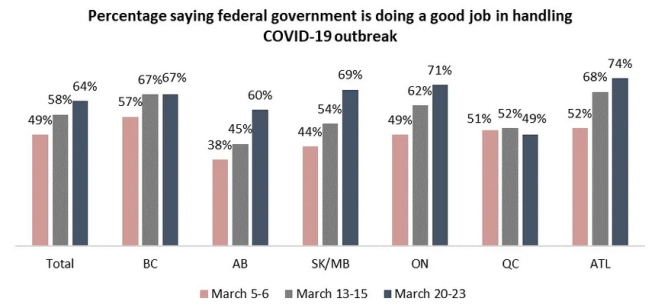
“Think Big” has become the guidepost for these abnormal times, but we can’t be governed by character alone. Good governance needs an infrastructure that can deliver, and thank goodness Canadians can also count on a professional public service. But at the same time we fear its muscles can’t flex in real time.
The biggest stumble of the past week was the Trudeau/Morneau over-reach in the first draft of Bill C-13, an attempt to skirt parliamentary oversight and seize control over taxing and spending for two years. Not immediately tasteful, not in character, and certainly not contributing to the we-are-in-it-together spirit that is crucial for good governance and success.
This over-reach was probably driven more by insecurity than by partisanship, springing from having to look through the veil of uncertainty that has fallen over Ottawa. Staring into the mirror and seeing no reassuring reflection, the Minister of Finance wished for a pot of gold, just in case, you never know, down the road, we may need it.
Insecurity about a fluid situation, and insecurity about how quickly programs can be delivered, flows out of clogged government plumbing, a hard constraint on Big Think: for years we’ve neglected, cut, denigrated, and now the public service has a tough time doing just-in-time.
Employment Insurance, that grand social insurance scheme born from the disaster of the Great Depression, intended to offer income support to all in need, to insure against the great social risks we collectively face, risks that would bankrupt private insurers in no time, how is it performing during a collective crisis of the very kind it was intended to address?
It is straining, with computer code written in the 1980s running its servers, processing power and devoted personnel stretched to the limit, overcrowded service centers that are now shut down. The public service is doing the best it can with old plumbing.
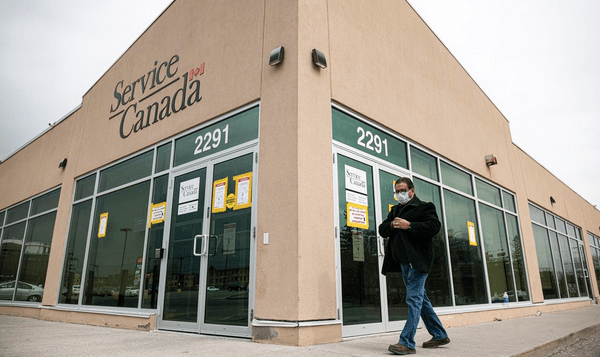
Ottawa mandarins often muse about an “all of government approach,” a busting across the silos of different ministries to address all aspects of a policy challenge. But the biggest silos of all have never been breached, those between policy development and service delivery. And now the delivery plumbing is conditioning the choices that Big Thinkers can make.
What is also clear from the COVID-19 crisis is that we should always be investing and innovating in public service delivery, something easy to ignore in normal times.
There is no doubt that the income support programs the federal government moved quickly out of the drawing room and into legislation last week were designed with an eye, not simply to whether they were big enough, but how they would be delivered. The cheques won’t be in the mail for weeks. In times of Corona, that’s a lifetime.
Our governments have to think big, but they can only implement incrementally, a couple of quick steps forward, another back. Events are moving too fast, capacity is too limited, for Canadians to expect otherwise, even if what they really need is both big and just-in-time government.
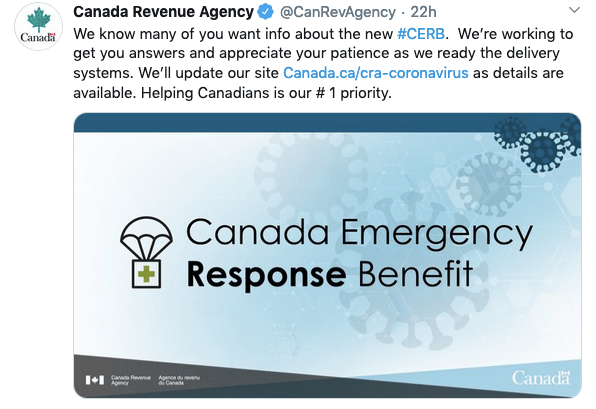
When Trudeau’s team first came to power they were enamoured with the idea of governing with data. Measure outcomes, set targets, recalibrate in the face of results, and move forward with a “there’s more to do” attitude. But lags in information and delivery make all that fall short.
There is always a big gap between intention and result, never mind in times of crisis, and that gap has to be filled with the trust that character instils in partners and citizens.
Trust gives us the assurance that the cheque is indeed in the mail, and character, now more than ever, needs to deliver. It can’t stumble too many times, before trust rides away.
[ A version of this post was published in The Globe and Mail on March 30,2020 under the title “Ottawa is struggling to be a just-in-time government.” ]

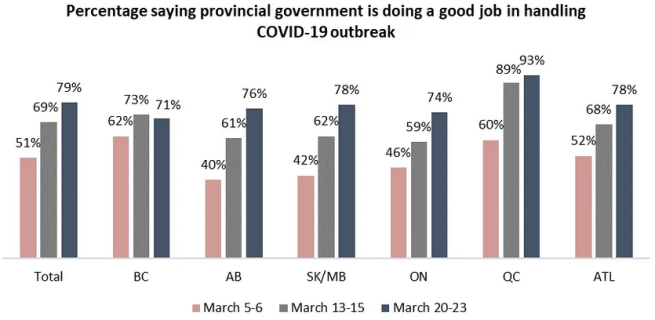
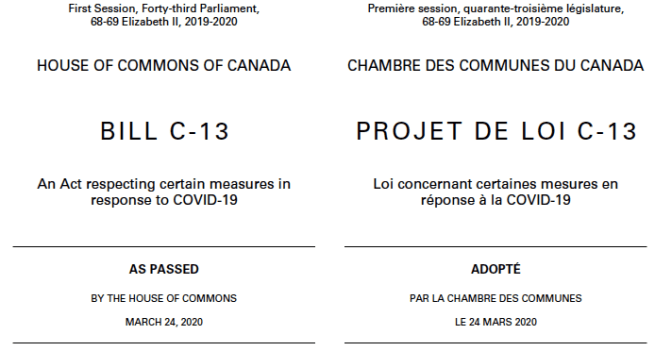
Agree on your point regarding the disconnects between policy development and service delivery. Worked at Service Canada in the early days, when the idea was to rebalance the two, given government largely policy driven, most DMs and senior execs rise on the basis of their policy work. That being said, it seems for the most part that the announced elements have taken service delivery considerations into account. And of course, government will be judged by Canadians on its delivery more than its announcements.
Thanks for this, and yes, I totally agree. That indeed was my point, it is pretty clear that policy development right now can’t move forward without also having a discerning eye on the delivery challenges, which will be the ultimate litmus test of success and whether trust in government will continue to be sustained, or erode.